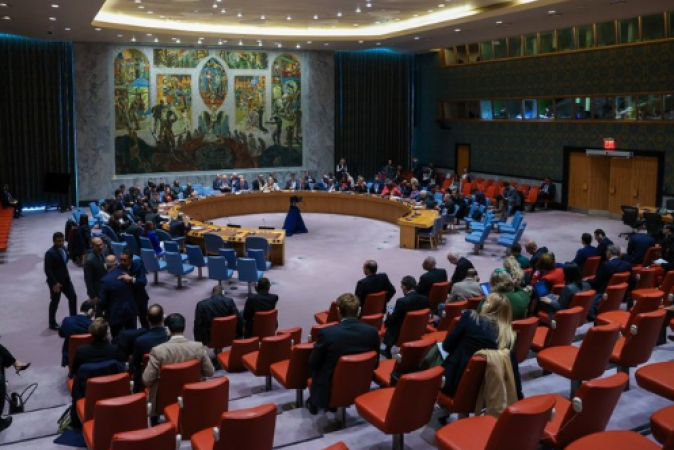
NY City: The "priority" of the UN is to support peace negotiations that would put an end to the Sudanese conflict and restore a transitional civilian government, which would also help stabilise South Sudan and shared regions like resource-rich Abyei.
This is according to Hanna Serwaa Tetteh, the secretary-general's special representative for the Horn of Africa, who warned of the dire political and humanitarian repercussions of the ongoing conflict for Sudan and its southern neighbour at a Security Council meeting on Tuesday.
"The priority right now is to stop the fighting between the SAF (Sudanese Armed Forces) and RSF (Rapid Support Forces), that hopefully would lead to a permanent ceasefire and return to a transitional civilian government," stated Tetteh.
Also Read: After a display of power, China's aircraft carrier Shandong returns to its home port.
The already precarious security situation in South Sudan, as well as the provinces of Blue Nile and South Kordofan, has been impacted by the conflict in Sudan, which began on April 15.
Gen. Abdel Fattah Al-Burhan is in charge of the SAF, and Mohamed Hamdan Dagalo is in charge of the RSF. The RSF is a well-armed militia that supported the army before the current conflict began.
According to the UN and other international humanitarian organisations, the ongoing fighting has resulted in over 600 deaths and thousands more injuries.
The fragile ceasefire between Sudan and the Sudan People Liberation Army-North, or SPLA-N, led by its longtime leader Abdel Aziz Al-Hilo, may be seriously impacted by the ongoing fighting.
The SPLA-N wants the provinces it controls to be recognised by the constitution. It currently controls South Kordofan in the south and a portion of Blue Nile.
Al-Hilo and Al-Burhan had a meeting in January in the Sudanese capital of Khartoum to talk about the state of the unity talks and Sudan's future, but there was no clear result.
Relations with South Sudan have been impacted by the conflict in Sudan, particularly in regards to border security, refugees, and the disputed region of Abyei. After Sudan was divided into South Sudan and Sudan in 2011, a sizable area of tribal lands known as Abyei is located on the border between the two nations.
Also Read: Bahrain's economy needs to diversify, according to the industry minister
In addition to having a precarious security situation, South Sudan has spent the past few years fighting its own civil war. According to UN officials, the risk of cross-border smuggling of weapons and ammunition has increased due to the conflict in the north.
"The fighting in Sudan has resulted in the influx of refugees and armed groups into the area," Martha Ama Akyaa Pobee, the UN's assistant secretary-general for Africa, said at the Security Council meeting on Tuesday.
According to Pobee, the UN Interim Security Force for Abyei, or UNISFA, which is in charge of maintaining peace in Abyei, has evacuated some of its personnel from the region due to security worries.
Also Read: Death toll in Sudan rises as warring parties continue negotiations
About 200,000 South Sudanese refugees, along with other Sudanese refugees who fled the fighting and sought refuge in neighbouring states, have returned to their home country of South Sudan since the fighting started last month. Prior to the conflict, there were approximately 800,000 South Sudanese refugees living in Sudan.